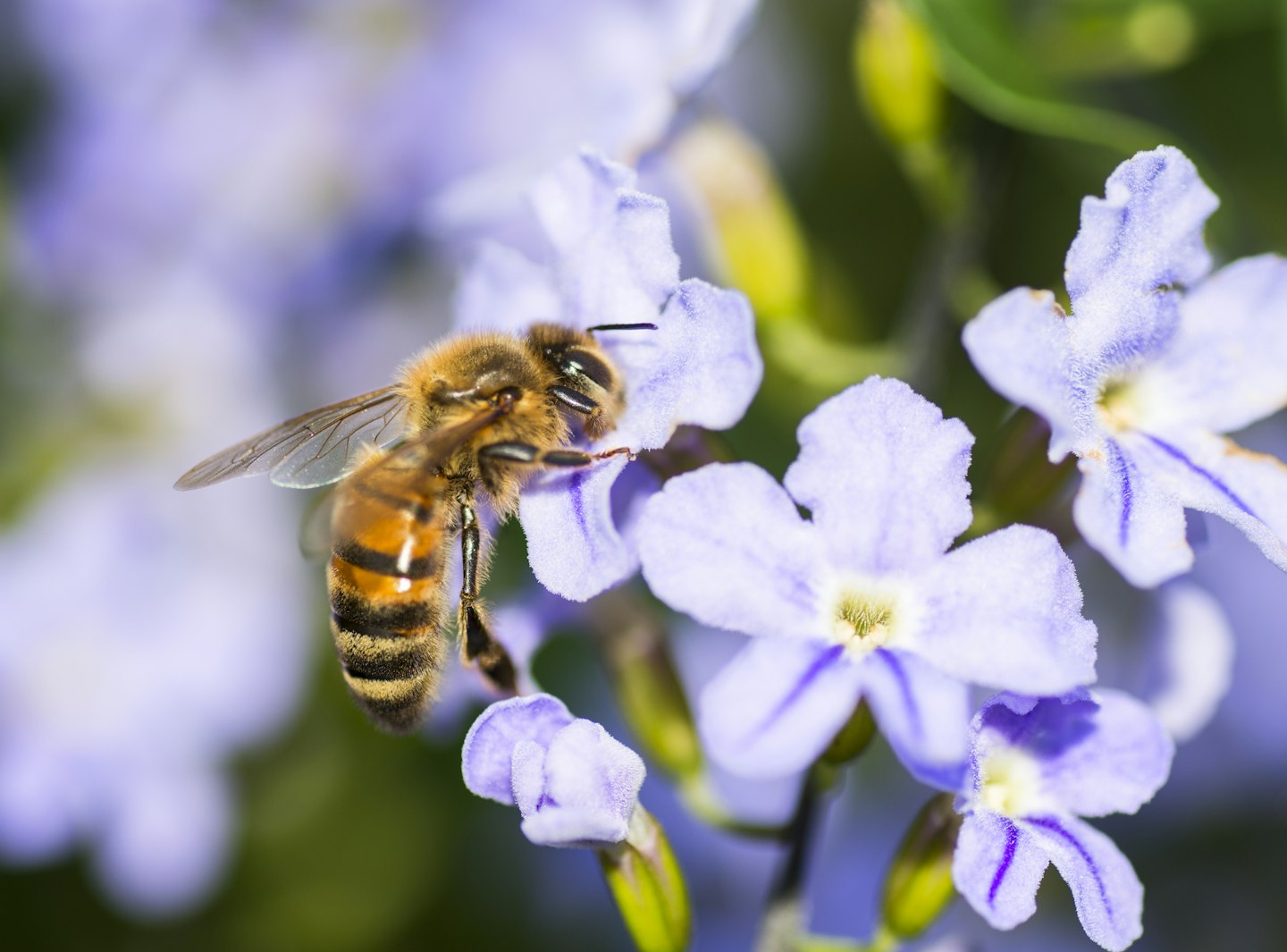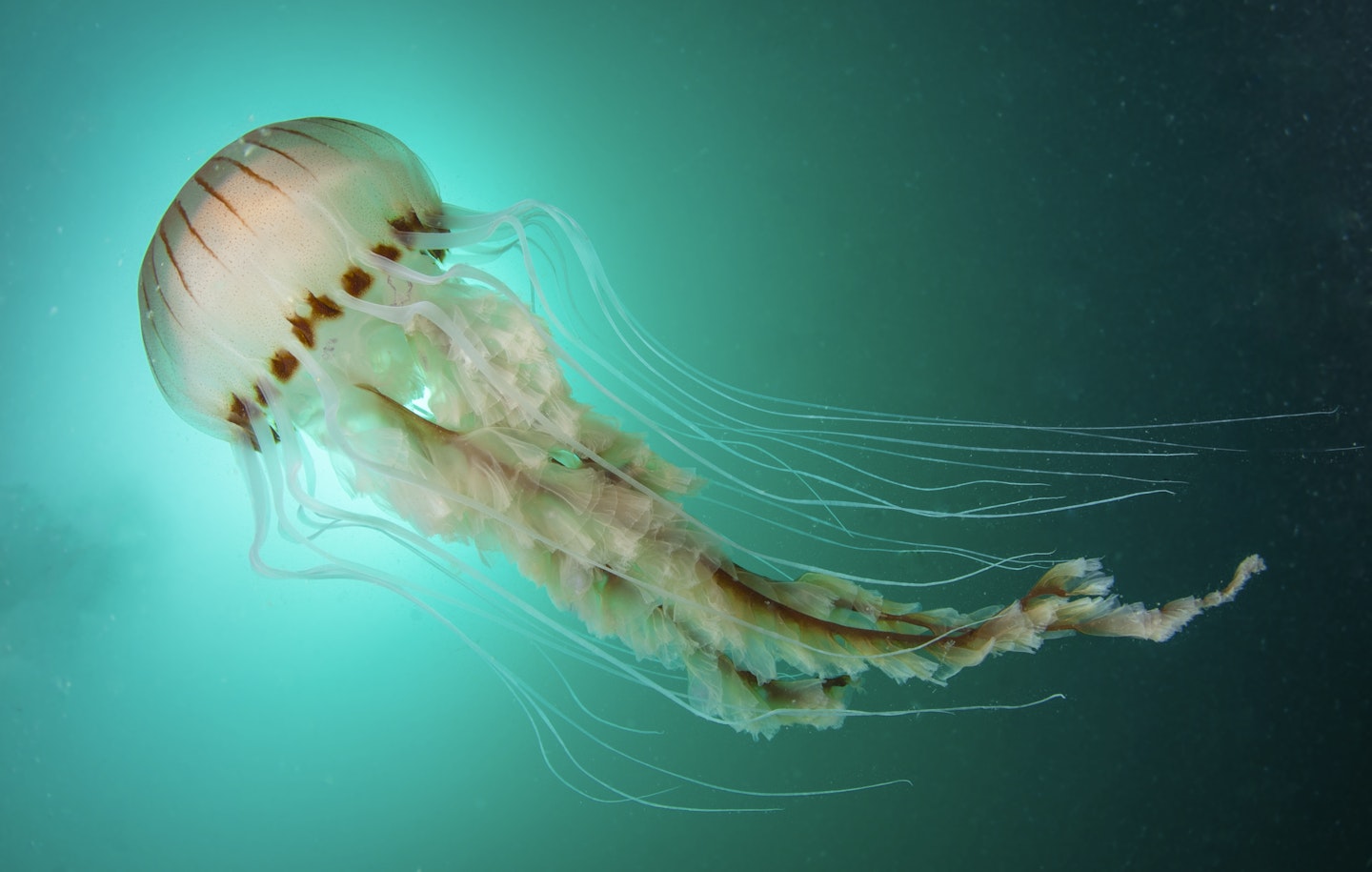Treating bites and stings can be confusing – remove the sting or
not? Use tweezers or fingernails? Wash with salt water or fresh? Vinegar or, erm, wee? Here’s my advice but, remember, if you aren’t sure, quickly Google it on your phone – or keep this guide in your bag.
WASPS AND BEES

Bees, unlike wasps, leave a sting, so take that out carefully with tweezers or your fingernails. Most people are left with a red, itchy, sore spot.
Cool it with an ice cube, which will restrict the spread of venom.
About 10% of people can have a larger local reaction, where a sting becomes quite red and swollen. That will go, but if it’s bothering you, try an antihistamine.
Look out for it getting all oozy and yucky, as that means it’s infected, so see your GP. There are all kinds of creams and sprays you can buy and, while I’m not totally convinced how effective they are, there’s no harm in having them in your bag.
If you come into contact with wasps, bees or hornets, don’t flap or swat at them, move slowly away – an agitated insect is far more likely to sting.
HORSE FLIES
These cause really nasty bites and the pain lasts for several days. They feel very sore and bruised, but unfortunately there isn’t much you can do.
Watch out for it becoming infected, and if it does see your GP. Try a low- potency steroid cream if it’s really inflamed.
MOSQUITOES
If you’re travelling in a country with a malaria problem and you’re really unwell with a fever, always assume it’s malaria until a doctor tells you otherwise.
Mosquitoes are more active in the mornings and evenings, and they’re attracted to perfume and darker clothes. DEET sprays are good – don’t forget to spray ankles, wrists, bra straps, the back of your neck and ears. If you do get bitten, use both antihistamine tablets and cream.
If you know you suffer badly, ask your GP for prescription- strength antihistamine to take on holiday.
JELLYFISH STINGS

Forget what you saw on Friends: urinating on a jellyfish sting can aggravate it into releasing more venom, as can vinegar.
Instead, gently wash it with lots of salt water. That deactivates nematocysts – the little sacs that cling on and release poison. Don’t use fresh water, it has the opposite effect.
Once you’ve washed the area, try to carefully remove the sacs – disturb
them too much and they release more venom. You can do it with tweezers or a credit card.
WEEVER FISH
These sandy-coloured fish bury themselves in the shallows of the water. If you step on one it shoots venom up into your foot. The pain is excruciating and your foot will go red and swell up.
That’s why jelly shoes are a good idea for children. Carefully remove the sting – then put your foot in hot water to deactivate the poison for at least half an hour. If you’re still in a lot of discomfort days later, get some hydrocortisone cream and antihistamines.
TICKS
You can prevent tick bites by avoiding long grass and wearing long trousers. If you find one has bitten you, gently grip it as close to the skin as possible using tweezers.
Pull steadily away without twisting or crushing it, then gently wash and apply antiseptic cream. A bite doesn’t mean you’ll get Lyme disease
– it’s rare – but see your GP if a bullseye- shaped rash or flu-like symptoms develop.
BED BUGS
Having bed bugs doesn’t mean your bed is dirty – you tend to pick them up from hotels. If you have a reaction you’ll have itchy red bumps in lines.
If you’re very itchy, a steroid cream or antihistamine will help. Bites could get infected if you’re scratching at night, so keep your nails clean. Bed bugs can be hard to get rid of, so call the council or pest control – hot-washing your bedding isn’t enough.
STINGS AND BITES: WHEN TO CALL 999
Finally, bear in mind that no matter what has bitten or stung you, symptoms such as feeling dizzy or weak, having difficulty breathing, a swelling throat or mouth, stomach cramps, nausea or large hives mean you’ve had a severe allergic reaction, so seek urgent medical help.
Equally, if you’ve been stung by a whole hive of wasps, several jellyfish, or if you’ve been bitten or stung somewhere sensitive like your face, genitals or inside your mouth, call 999.
Want to hear more for Dr. Christian? Check out:
Dr Christian Jessen on life with HIV: ’There’s no need to be scared anymore’
